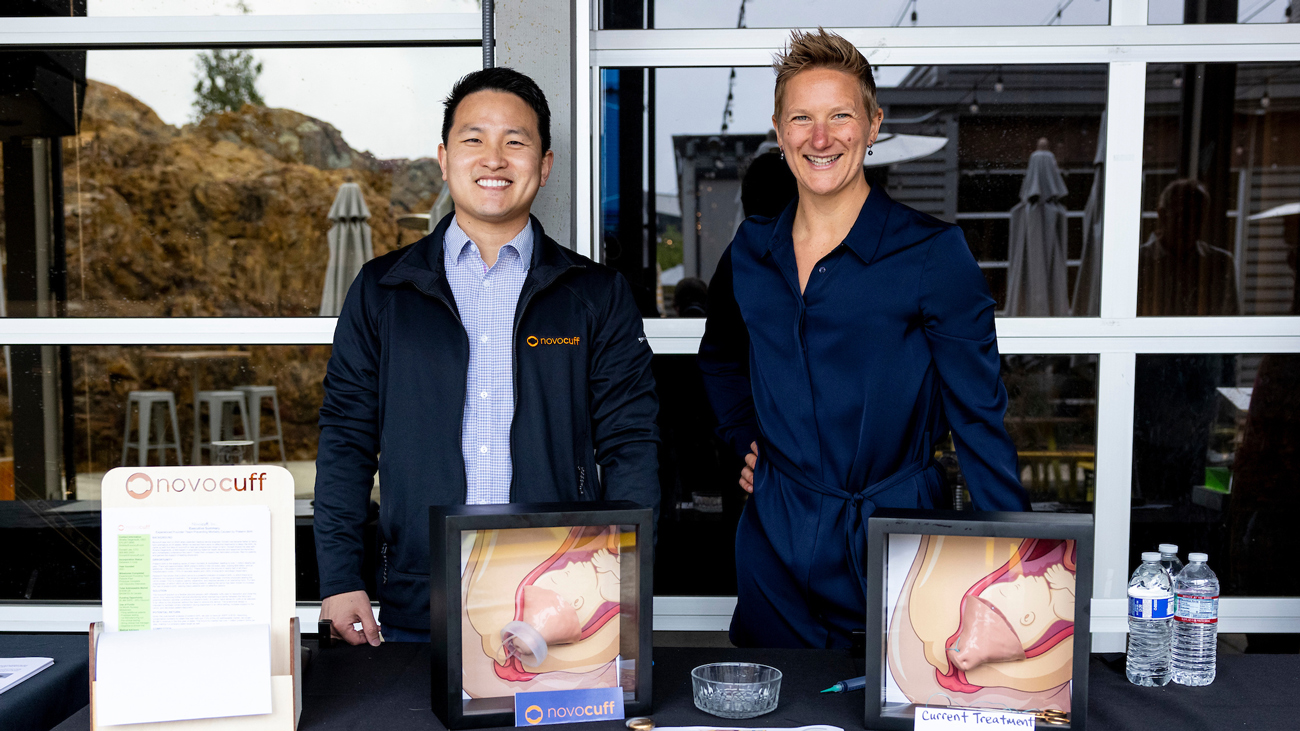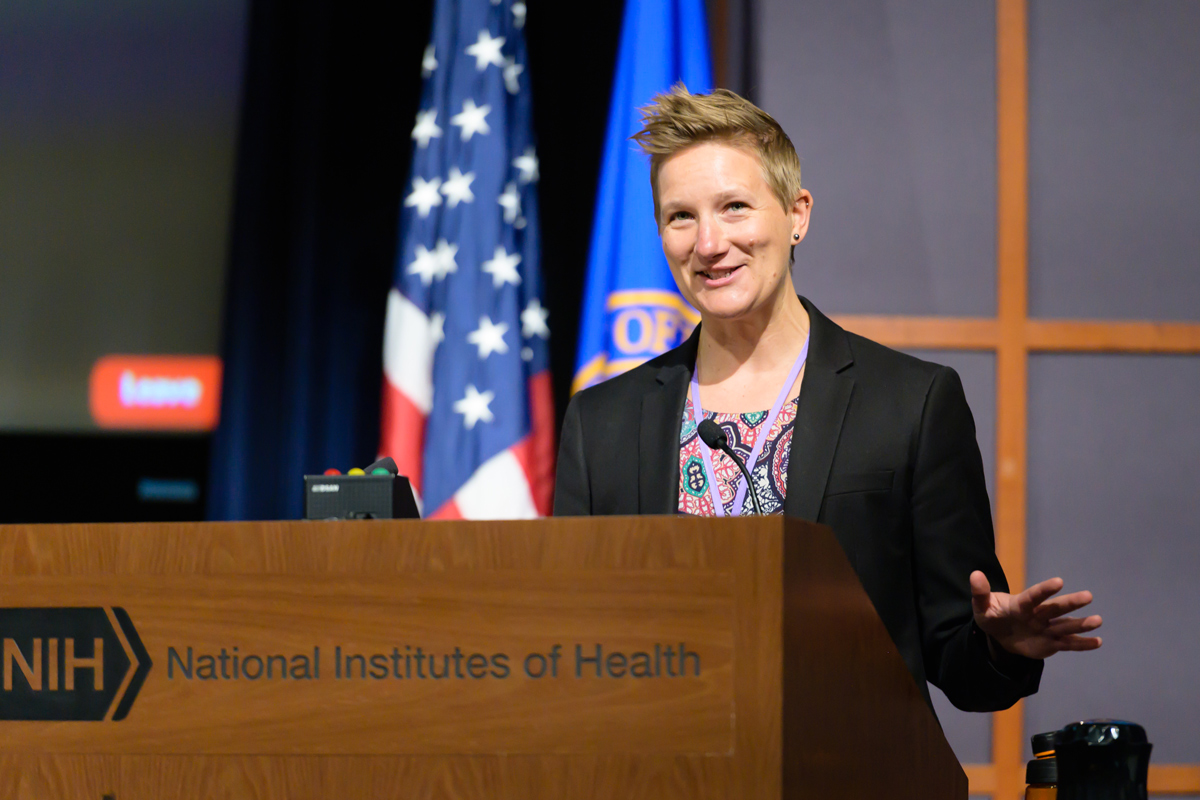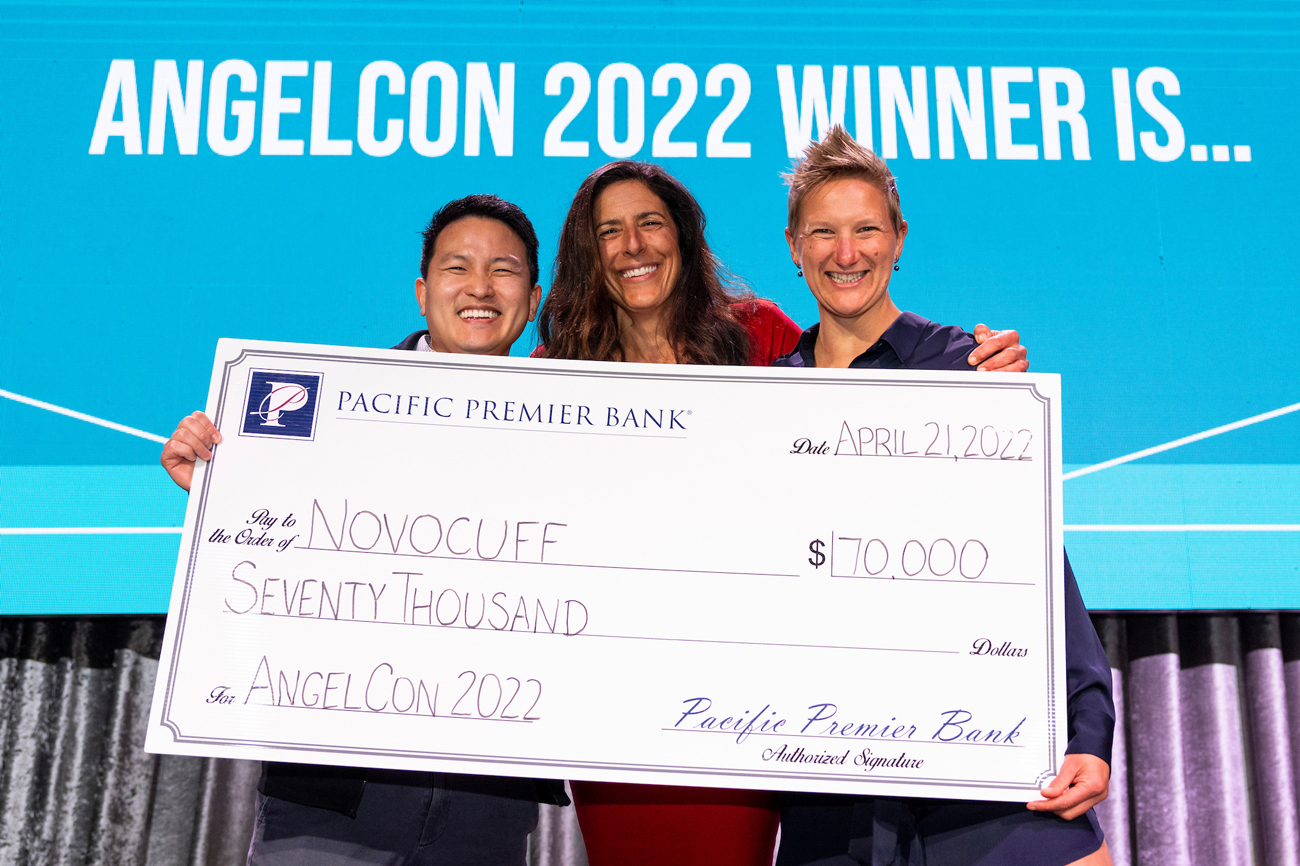Expecting the Unexpected
An alumni startup hopes its device will save moms and babies from pre-term labor complications. For one founder, the fight is personal.

In early April of 2019, Donald Lee (General Engineering ’13) accompanied his wife Christine (M.S. Accounting ’12) to a routine ultrasound appointment. The Lee’s were expecting twins — they were not expecting to spend the following weeks in the hospital.
During the appointment, Christine was diagnosed with a short cervix, a condition that can increase the likelihood of preterm birth. She was immediately rushed to a hospital across the street.
“We never went home after that,” Donald Lee said.
After three weeks on bed rest, Christine gave birth to twin daughters at 24 weeks — about four months earlier than typical. The twins spent the next five months in the neonatal intensive care unit (NICU), a common path for premature babies born with underdeveloped lungs and immune systems. Still, the Lees knew they were lucky: roughly 20 percent of infants born at 24 weeks do not survive, according to an American Medical Association journal.
“I asked a lot of physicians during that time, ‘What could we have done differently to prevent this?’” Lee said. “The answer across the board was the same: There was nothing we could have done.”
That wasn’t good enough for Donald.
With a background in mechanical engineering, he set out to invent a device that would prevent preterm births. He began researching and prototyping and, eventually, developed a product that would become the foundation of Novocuff, a maternal healthcare startup working to reduce infant mortality caused by preterm birth.
“Globally, there are about 15 million preterm labor cases,” Lee said, adding that most deaths attributed to preterm labor could be prevented. “Our aim is [for] our device to be straightforward enough and simple enough to use globally [so that] we can bring down those millions of deaths significantly.”
Novocuff’s medical device can extend pregnancy for those at risk of delivering their children prematurely. The silicone device is vaginally inserted and applies compression to the cervix. It’s also adjustable, so physicians can change the compression throughout the course of the pregnancy. The device’s design is purposefully simple so that it can be used even in the absence of a highly trained physician.

Degekolb speaks at the National Institutions of Health’s Innovations in Maternal Health Workshop. Image courtesy of Novocuff.
After developing the initial prototype, Lee was unsure how to bring that solution to market — so he reached out to a former colleague, Amelia “Amy” Degenkolb (M.S. Biomedical Engineering ’12), who was on the founding team of medical startup Alydia Health. As an engineer, she helped developed Alydia’s Jada System, a device that prevents postpartum hemorrhage.
“It was all over the local news that Alydia was acquired by Organon for $240 million, and I assumed [Degenkolb] would be free,” Donald said. “And so I called her, and I asked if she could meet for coffee.”
Degenkolb was immediately inspired to join the effort. The two engineers worked collaboratively to fine tune the device’s design and brainstorm the commercialization path. Lee, who became CTO, made the team’s designs tangible by creating models, handling mold manufacturing, and building the prototype. Degenkolb became the CEO, leading the startup’s business relations, fundraising and FDA clearance process.
Degenkolb believes the relationships she built with clinicians and care providers during her seven years with Alydia has helped Novocuff make meaningful strides as it works toward regulatory clearance. “Understanding the nuances and the complexities of a pregnancy-related study and making sure to get physician input really early on is so imperative in creating, not just a device that will do the most good, but also a trial that will demonstrate its efficacy and its safety in the most compelling way,” she said.
The Cal Poly Center for Innovation and Entrepreneurship (CIE) was a key resource in the success of Alydia Health, so Degenkolb brought Novocuff to the CIE Incubator, a two-year program that provides startups with the resources needed for smarter, faster growth. It connects participants with mentors, consultants, and potential investors.
“It was a natural fit for us,” Degenkolb said. “I had already been through this process once with (Alydia Health), and so we did it again.”

Novocuff’s Donald Lee (left) and Amy Degenkolb (right) celebrate their Angelcon win with Judy Mahan of the Small Business Development Center
It was also a connection to critical funding. In 2022, Novocuff won $70,000 in equity-backed funding from the CIE Small Business Development Center’s (SBDC) AngelCon pitch competition. The experience, Degenkolb said, helped her and Lee sharpen their pitch skills quickly as they began fundraising.
Much like a startup, the Incubator has evolved since Degenkolb’s first foray into the program a decade ago. “There are more device savvy people in and around the incubator now,” she notes. “The physical space was really nice, but the resources and the access to consultants really have increased over the years.”
The support from the Incubator propelled the venture forward toward greater exposure opportunities in 2023. Novocuff won the audience choice award at the Women’s Innovation Healthcare Summit and won gold prize and $15,000 from the Impact1 Fetal & Maternal Pitch Competition at Stanford. Degenkolb also spoke at the National Institutions of Health’s Innovations in Maternal Health Workshop and was selected as a 2023 Ferolyn Fellow to advance authentic leadership in healthcare innovation. Behind the scenes, the team closed its $2 million seed funding round and launched two first-in-human clinical studies. The early results are exciting, said Degenkolb.
This year is poised to be critical for the startup. After officially graduating from CIE’s Incubator, Novocuff joined Fogarty Innovation to amplify their growth. Novocuff has launched their Series A funding to grow their team as they prepare for a larger clinical study to support an FDA submission and commercialization.
As for Lee family, Donald’s daughters are now almost five years old. They’re healthy. They beat the odds. As Novocuff grows, the team hopes to create more success stories and to raise the standard of care when it comes to maternal health, which has been understudied and underfunded.
“I think it is both our privilege and our responsibility as innovators to move this field forward — to bring better technologies and better treatments to both clinicians and patients,” Degenkolb says. “It’s exciting to be part of that.”
Looking for more startup news? Check out Cal Poly Magazine’s recent piece on the alumni founders of Flume.


